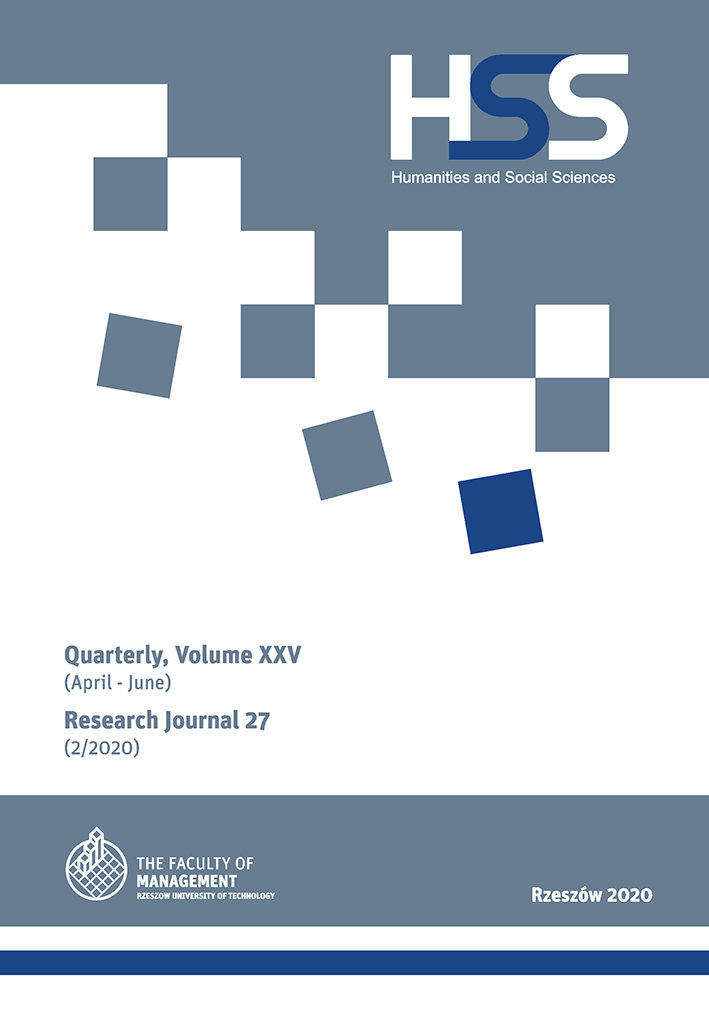Abstract
The majority of research examining the impact of self-efficacy on performance across a variety of settings has provided evidence to validate the claim that agency beliefs facilitate human achievement. However, such inquiries have focused within a single domain of functioning. The present study explores the influence of agency beliefs on academic success and the counteraction of the lack of decisiveness in the case of career choice, also known as career indecision. The first part of the paper is conceptual and provides the reader with the theoretical background behind both constructs. The quantitative analysis supported the existence of a bi-directional relationship between the study variables. The last section of the paper is devoted to the qualitative investigation and discussion of the implications prompted by our examination and reveals several noteworthy conclusions: the inability of the participants to extend their agency beliefs from one domain of functioning to another domain without initial guidance and the lack of a clear vision of a future career path stemming from insufficient career counselling.
References
Artino, A. (2012). Academic self-efficacy: from educational theory to instructional practice. “Perspectives on Medical Education” 2.
Bandura, A. (1991). Self-regulation of motivation through anticipatory and self-regulatory mechanisms: Perspectives on motivation. “Nebraska symposium on motivation” 38.
Bandura, A. (1997). Self-efficacy: The exercise of control. New York: Freeman. Bandura, A., Locke, E. (2003). Negative Self-Efficacy and Goal effects Revisited. “Journal of Applied Psychology” 88.
Betz, N., Voyten, K. (1997). Efficacy and outcome expectations influence career exploration and decidedness. “The Career Development Quarterly” 46.
Chartrand, J., Martin, W., Robbins, S., McAuliffe, G., Pickering, J., Calliotte, J. (1994). Testing a level versus interactional view of career indecision. “Journal of Career Assessment” 2. Creed, P., Prideaux, L., Patton, W. (2005). Antecedents and consequences of career decisional states in adolescence. “Journal of Vocational Behaviour” 67.
Damasio, A., Tranel, D., Damasio, H. (1991). Somatic markers and the guidance of behaviour: Theory and preliminary testing [In:] Levin, H., Eisenberg, M., Benton, A., eds., Frontal lobe function and dysfunction. New York: Oxford University Press.
Gati, I., Krauz, M., Ospiow, S. (1996). A taxonomy of difficulties in career decision-making. “Journal of Counselling Psychology” 76.
Germeijs, V., De Boeck, P. (2002). A measurement scale for indecisiveness and its relationship to career indecision and other types of indecision. “European Journal of Psychological Assessment” 18.
Lane, J., Lane, A. (2001). Self-Efficacy and Academic Performance. “Social Behaviour and Personality: an International Journal” 29.
Lent, R., Brown, S., Larkin, K. (1984). Relation of self-efficacy expectations to academic achievement and persistence. “Journal of Counselling Psychology” 31.
Lunenburg, F. (2011). Self-efficacy in the Workplace: Implications for Motivation and Performance. “International Journal of Management, Business, and Administration” 14.
Oldham, A. (2016). Predictive Abilities of Past Performance Versus Self-efficacy, Across Contexts and Goal Types. “Honours College Capstone Experience”. Owensboro: Western Kentucky University.
Reddan, G. (2015). Enhancing student’s self-efficacy in making positive career decisions. “Asia-Pacific Journal of Cooperative Education” 16.
Schwarzer, R., Jerusalem, M. (1995). Generalised Self-Efficacy Scale [In:] Weinman, J., Wright, S., Johnston, M., eds., Measures in health psychology: A user’s portfolio. Causal and control beliefs. Windsor: NFER-NELSON.
Schwarzer, R., Warner, L. (2013). Perceived self-efficacy and its relationship to resilience [In:] Prince-Embury, D., Saklosfske, D., eds., Resilience in Children, Adolescents, and Adults. Translating Research into Practice. New York: The Springer Series on Human Exceptionality.
Wheeler, K. (1983). Comparisons of self-efficacy and expectancy models of occupational preferences for college males and females. “Journal of Occupational Psychology” 56.
Wise, J., Trunnell, E. (2001). The Influence of Sources of Self-Efficacy Upon Efficacy Strength. “Journal of Sport and Exercise Psychology” 23.


